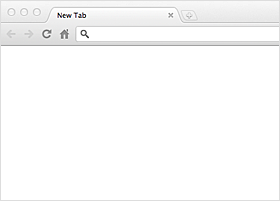 The upcoming Books in Browsers conference will focus on books as “networked, distributed sets of interactions,” as opposed to content containers. I’ve asked several of the event’s participants to address the larger concepts surrounding books in browsers. We’ll be publishing these interviews over the coming weeks.
The upcoming Books in Browsers conference will focus on books as “networked, distributed sets of interactions,” as opposed to content containers. I’ve asked several of the event’s participants to address the larger concepts surrounding books in browsers. We’ll be publishing these interviews over the coming weeks.
First up is Peter Brantley (@naypinya), director of the BookServer Project at the Internet Archive and co-founder of the Open Book Alliance. Brantley, who also is a co-organizer of the Books in Browsers conference, tackled a question about how content publishers should regard the browser.
Have browsers already become our default mechanism for content consumption? And if that’s the case, do content industries need to think “browser first” rather than “digital first”?
 Peter Brantley: I think the browser — or more specifically, the browser rendering engine, e.g., WebKit — has been the dominant rendering mechanism for digital content since the advent of the web. Although computer text interfaces were dominant for several decades, non-browser graphical implementations, such as those available on Xterms, were quickly relegated to niche applications once the HTTP protocol was widely implemented.
Peter Brantley: I think the browser — or more specifically, the browser rendering engine, e.g., WebKit — has been the dominant rendering mechanism for digital content since the advent of the web. Although computer text interfaces were dominant for several decades, non-browser graphical implementations, such as those available on Xterms, were quickly relegated to niche applications once the HTTP protocol was widely implemented.
The network offers a low-barrier distribution mechanism, and the browser provides for a relatively coherent set of standards over content presentation and behavior. This set of more or less open standards is growing in sophistication through the addition of support for sensor and geolocational awareness as well as more transparent media inclusion and user feedback. Designing for the browser will be what designing content means.
There’s one new issue that browser-based design propels forward: We are just now beginning to grapple with how we learn from, and use, complex media.
Text has been a persistently desirable format because it offers a low threshold for cognitive processing and conceptual understanding. Creative arts will have to acquire an understanding of when and how we can mentally take advantage of the technologies that are beginning to emerge: e.g., when should their affordances be made visible — and when transparent — to the user. Even more importantly, we will have to make sure the user can control the experiences that they are increasingly helping to craft, and not be unwilling victims of them.
How we tell stories to each other will remain a challenge at the nexus of our technology, intuition, and empathy.
This interview was edited and condensed.
 TOC Frankfurt 2011 — Being held on Tuesday, Oct. 11, 2011, TOC Frankfurt will feature a full day of cutting-edge keynotes and panel discussions by key figures in the worlds of publishing and technology.
TOC Frankfurt 2011 — Being held on Tuesday, Oct. 11, 2011, TOC Frankfurt will feature a full day of cutting-edge keynotes and panel discussions by key figures in the worlds of publishing and technology.
Save 100€ off the regular admission price with code TOC2011OR
Related:
